6+ Third Party Confidential Information Policy Templates – PDF, Word
If you have seen the documentary film, “Pirates of Silicon Valley,” you will know just how much tech giant Apple values secrecy and information from the very beginning. The reputation of Steve Jobs as someone unmatched for the ferocity with which he enforces new product announcements to be kept hidden until their official launch is far-reaching. For all his brilliance, the man was borderline paranoid, going to great lengths about avoiding Apple product leaks, and made sure the rest of his staff or the few people in management who knew about the latest Apple technology or gadget, do the same. You may also like policy template formats.
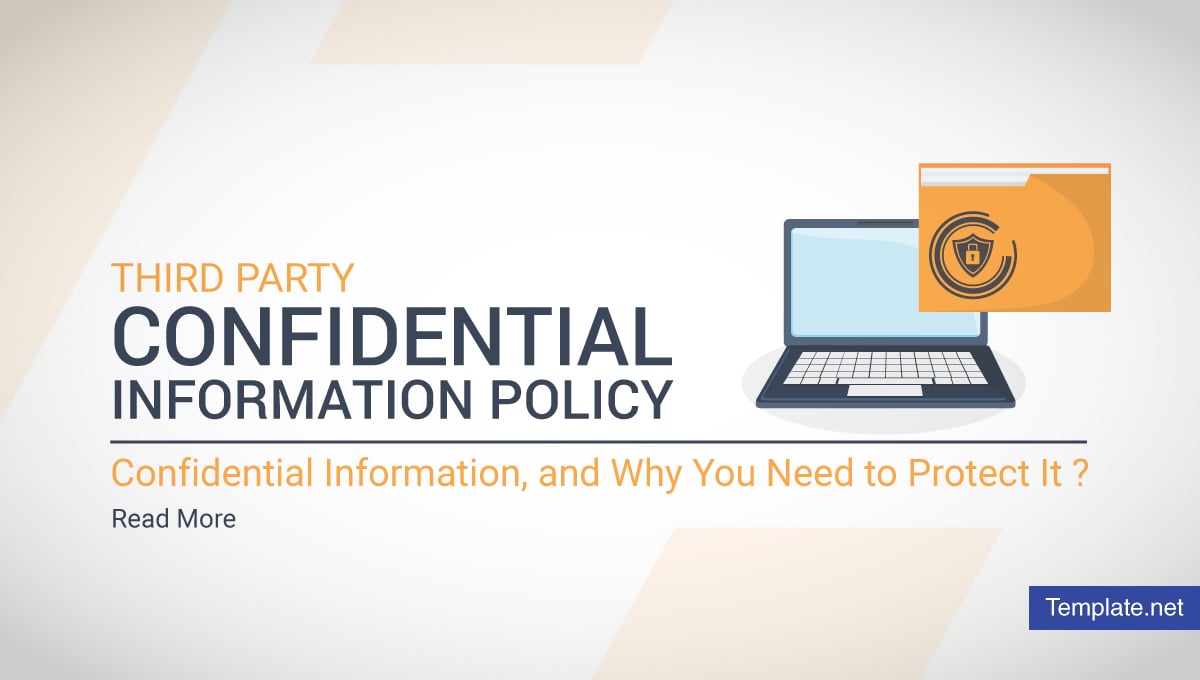
Paranoid might be a strong word to call it, but let’s be honest. This is, after all, Apple. The same Apple that had dominated the Forbes rich list for years, lead by the same man famed for his fears of corporate espionage as much as his larger than life persona. One thing remains to be true, Apple is in a league of its own because of the value it puts in protecting its company’s secrets. So much so that they make it clear to employees and business partners that any violation of that sacred, sacred rule, counts as grounds for dismissal.
Policy Template Bundle
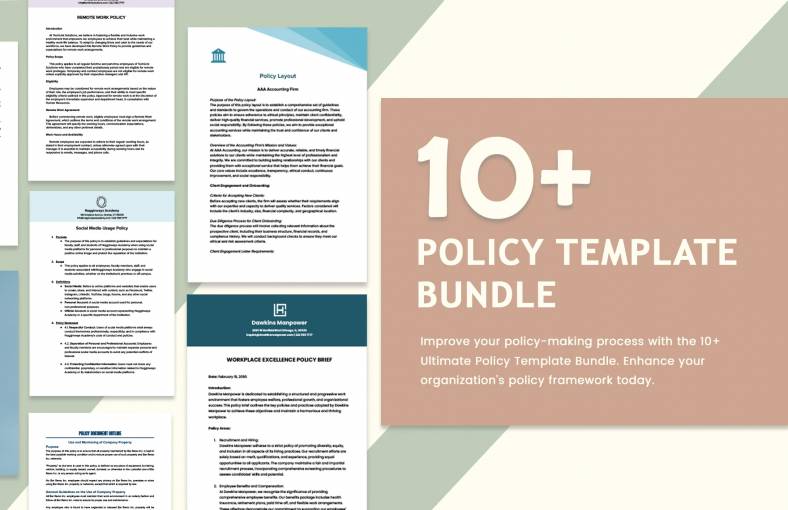
Third Party Confidential Information Policy Template
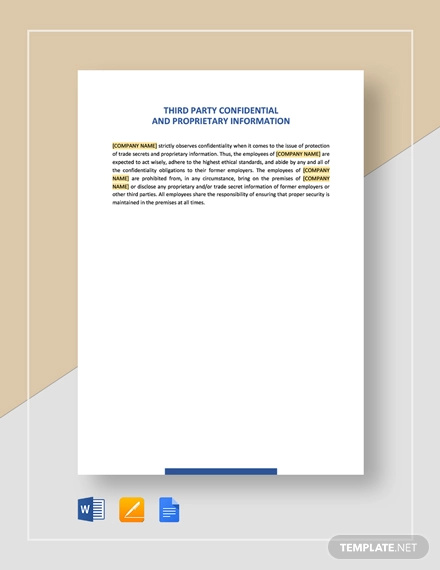
Information Privacy and Confidentiality Policy
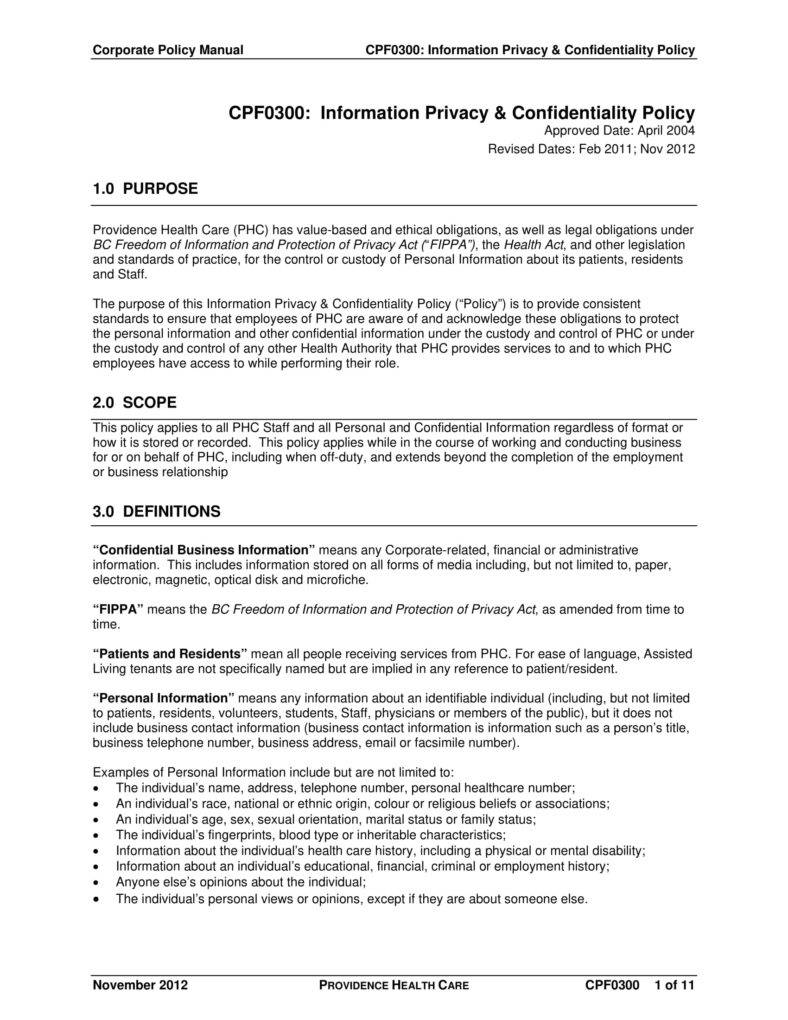
providencehealthcare.org
Sample Confidentiality Agreement

councilofnonprofits.org
Confidentiality Policy
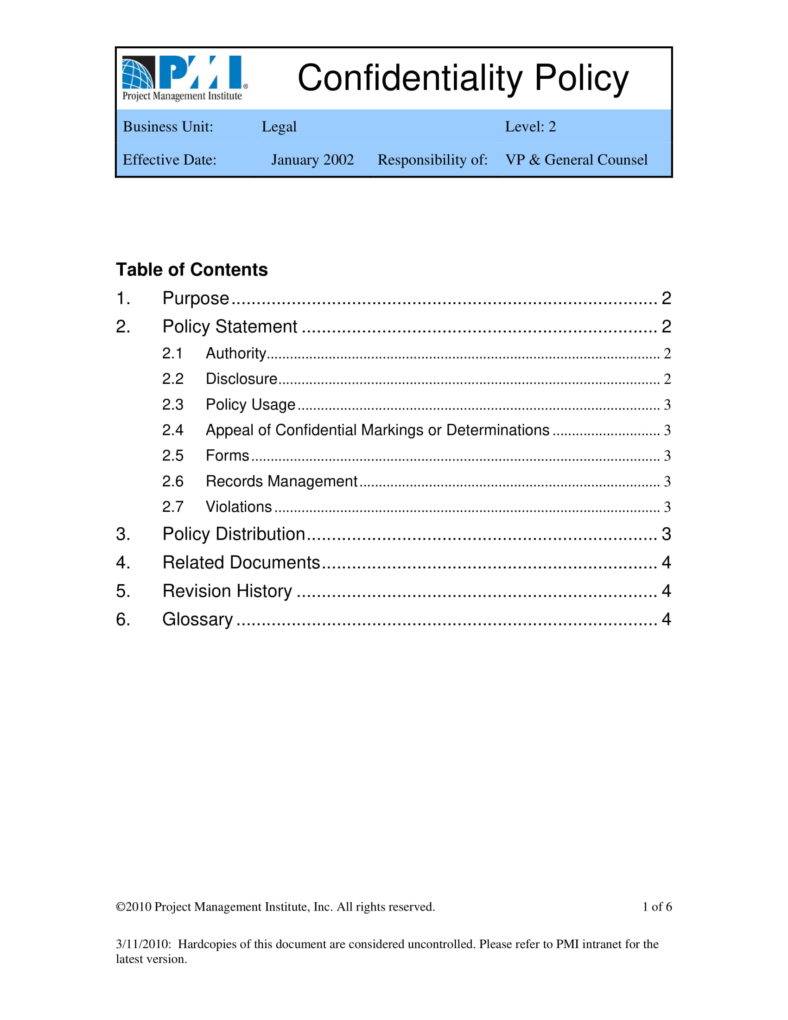
pmi.org
Can you blame them? Steve Jobs or no Steve Jobs, probably not. In 2007, the announcement of Apple iPhone astonished everyone in the corporate world, at the annual Macworld Trade Show when Steve Jobs, the sleeves of his trademark black mock turtleneck shirt and all, turned up and introduced what would become arguably the biggest breakthrough in mobile communications technology, after two and a half years of keeping it secret.
While there were already whispers about a phone that works almost the same way as the iPod, people were short of the product’s exact details. It doesn’t stop there yet. Journalists noted members of the Apple management murmuring that they were seeing the iPhone for the very first time, just like the rest of the world, along with some 4,000 Apple followers packing the Moscone meeting center. That was more than a decade ago, because the rest, as they say, is history. You may also like policy templates in word, pdf.
This type of secrecy and confidentiality doesn’t come without a price because global companies as powerful as Apple have been guilty of suing freelance journalists and bloggers who dare to post even just a hint of information about products that are yet to be announced. This is often because secrets, as well as patents, protect a business like them from foreign competitors who are more than capable of making clones of products and designs with which the company spent sleepless nights toying with, racking their brains, and employing the best talents to make the vision of business geniuses like Steve Jobs, tangible.
Because, for any business that is serious about protecting its interests, there is no such thing as “going overboard” when it comes to keeping information confidential. In these situations, more is always considered less. If you look at this in any other way, you are vulnerable to the ease and quickness with which information is shared and proliferated, making the means of protection and policies about propriety technologies more challenging than ever before and at the same time, more important. You may also like free policy templates.
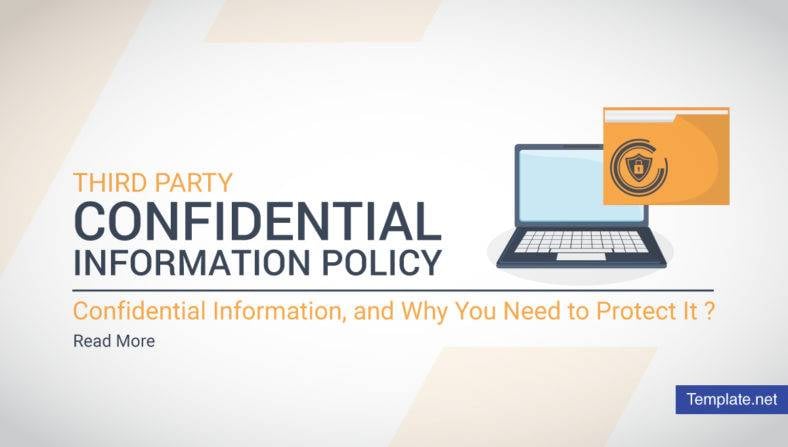
What is Confidential Information and Why You Need to Protect it?
So, you thought only large companies with established brands that have been known to serve customers for well over decades and sometimes even close to a hundred years, are the only ones capable of producing valuable trade secrets. You thought wrong. Tech giants, high fashion signature brands, and Starbucks aren’t the only ones with information and material worth protecting. All businesses across all industries have information that took years to create, business plans that took a team of talented people to develop, product strategies that took blood, sweat, tears, and painstaking brainstorming to produce, enhance and build dreams on, need protection from the law because believe it or not, they are all worth something.
That’s enough reason for a business to establish strict policies for confidential information, especially if they want to make a profit out of licensing it to third parties or selling part of the company to an interested buyer. Everything has value, so in the digital age, ensuring the protection of your company’s secrets is not something that is exclusive to the companies who are worthy of Fortune 500 and Forbes’ elite.
There are various types of information that a company includes in their confidentiality policies but they can often be broken down into the following:
1. Customer List
If a former employee gets his or her hand on this, there’s really a hundred percent chance for his or her personal use which in most cases will probably be the offer of the same goods and services at a price that competes with yours, and you suffer extreme damage as a result.
2. Financial Records
This is pretty self-explanatory. A business’ financial statements (management, client, third party) would give anyone an advantage as to the figures of transactions and could also be a reason for various fraudulent activities. It also makes you vulnerable to the pitfalls of lawsuits because any form of financial information obtained will be a reason for others to expose the company’s financial assets and mess with it.
3. Terms, Contracts, and Other Documents
They hold trade and company secrets, including processes that keeps your place in the industry’s competition, therefore, you don’t want anybody stealing or knowing about them.
4. Product Ideas and Proposals
Just like any other company, your simple business would want to be one step ahead of your competitors so that you have a team who tries to come up with new strategies and ideas of what type of product you’ll be building your brand around, or how you can improve what products and services you already have to suit your intended market. If the product proposed has more than enough potential in becoming a hit, then like Apple, you would only want to keep the details under wraps until you are ready to introduce it. Otherwise, just like the makings of a good story, you lose the plot, even before you even got started.
The law of confidentiality and trade secrets in business doesn’t have a direct existing legislation, nor is it regulated properly like the Copyright Act, Patent Act or Trademarks Act. This makes the law governing confidentiality in a commercial situation, a common law, a law that already went through many changes in history as decided by judges who were in charge of similar cases. You may also like HR policy templates.
It is important to always have clauses of confidentiality as a vital part of any employment agreement or third party services agreement for contractors working for you. But, it would even be better to have a separate set of policies in place because whether you admit it or not, any, or some of these people may be the ones storing company ideas and sensitive information, copying your business emails, client lists, financial records, marketing plans and other trade secrets worth a dime. Make sure that should such a situation occur, the person or people would be held accountable and not just walk away, reaping the profits of what you and the rest of your team invested in and worked hard for.
Make it a point to update the existing privacy policies and guidelines regularly based on the new laws that the government have. After that, the same policies should be communicated across the organization to ensure members or employee compliance. When you set the rules and maintain standards of confidentiality at work, a business not only keeps itself safer from legal mishaps but also raises employee productivity in the process, while keeping them safe and protecting their rights.
Confidentiality and the Workforce
Confidentiality in the workplace means keeping the employee, customer, and client or third party information private. Usually, it also shows organizations taking necessary steps to make sure that client information remains confidential. However, with employee information, they may not necessarily be as particular still treat it with importance.
This type of philosophy have gained some criticism over the years since people argue that the workforce can only understand confidentiality and protection of trade secrets if their personal or private information is considered to be no less important, ergo, if they expect the clients to be protected, the company should also protect the rights of the employees to keep their information a closed file. You may also like company policy templates.
Many things can happen when confidential information is found in the wrong hands with most, if not all of them not being good. They can be used for committing illegal activities which leads to serious of troubles for the company. You’re looking at cases of fraud, discrimination and identity theft among others. The lawsuits will be waiting by the hundreds and lawsuits aren’t cheap.
Today, most states emphasize protection of the confidentiality of certain information in the workplace. Any form of disclosure of sensitive client, third party or employee information can result in the loss of confidence and trust from the management to client down to the workforce, and in turn, will result in huge profit losses. You may also see business policy templates.
In the corporate world, intellectual property (IP) often refers to proprietary software, marketing strategies, exclusive services and goods, processes for the manufacture of products, branding, advertising and more. A company’s intellectual property is a valuable asset, worth protecting, and any sort of compromise from anybody is often rendered unacceptable for obvious reasons.
But, this isn’t limited to the sensitive and top secret materials. Customer information, listings, financial records, business marketing strategies, and several project proposals, if stolen, is a big threat to the reputation of a company. It is unfortunate that the business front liners themselves are the ones guilty of divulging stuff, ideas, records, and other information, in most cases. Regardless of whether this is intentional or not, an employer needs to set appropriate policies in place, to ensure everybody understands it isn’t okay to gamble a company’s reputation and integrity. Risk management of confidential information needs to start within the workplace.
Personal Information Policy
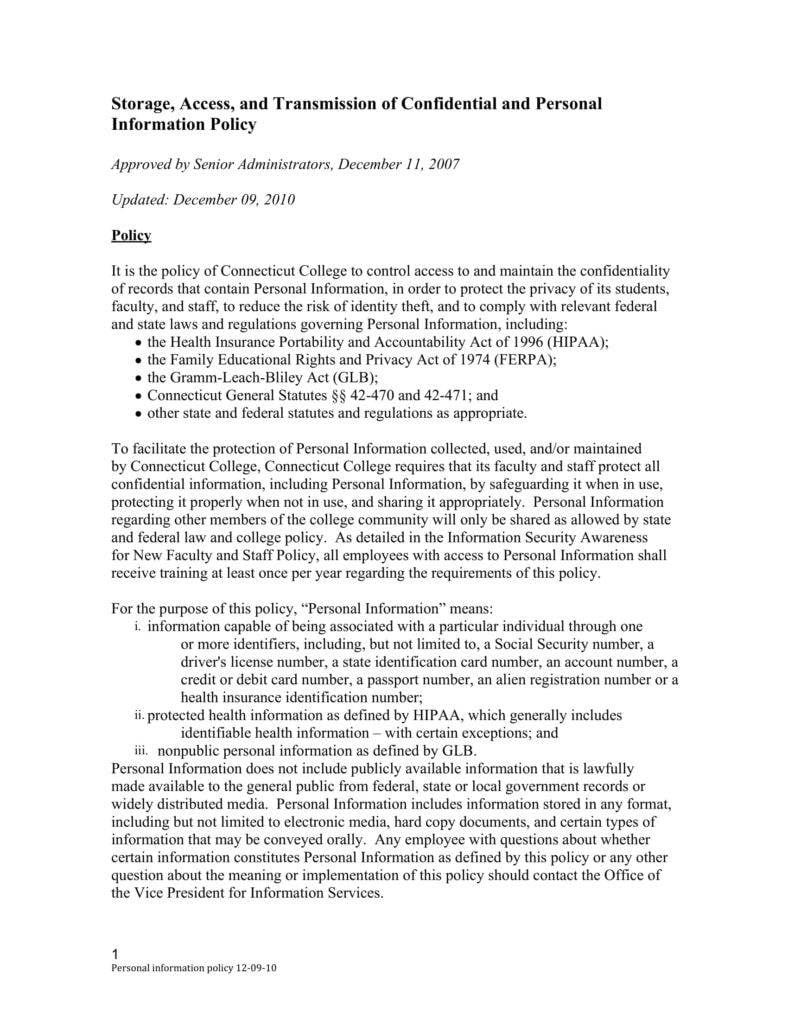
conncoll.edu
Information Confidentiality Policy
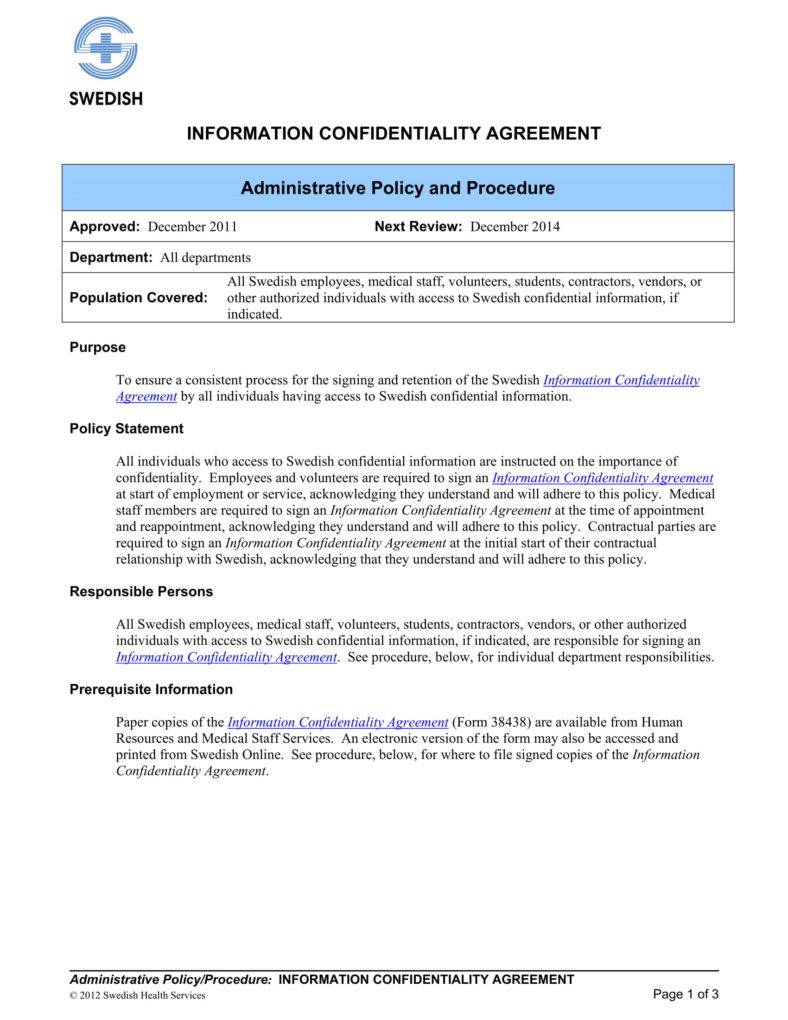
swedish.org
Privacy Confidentiality
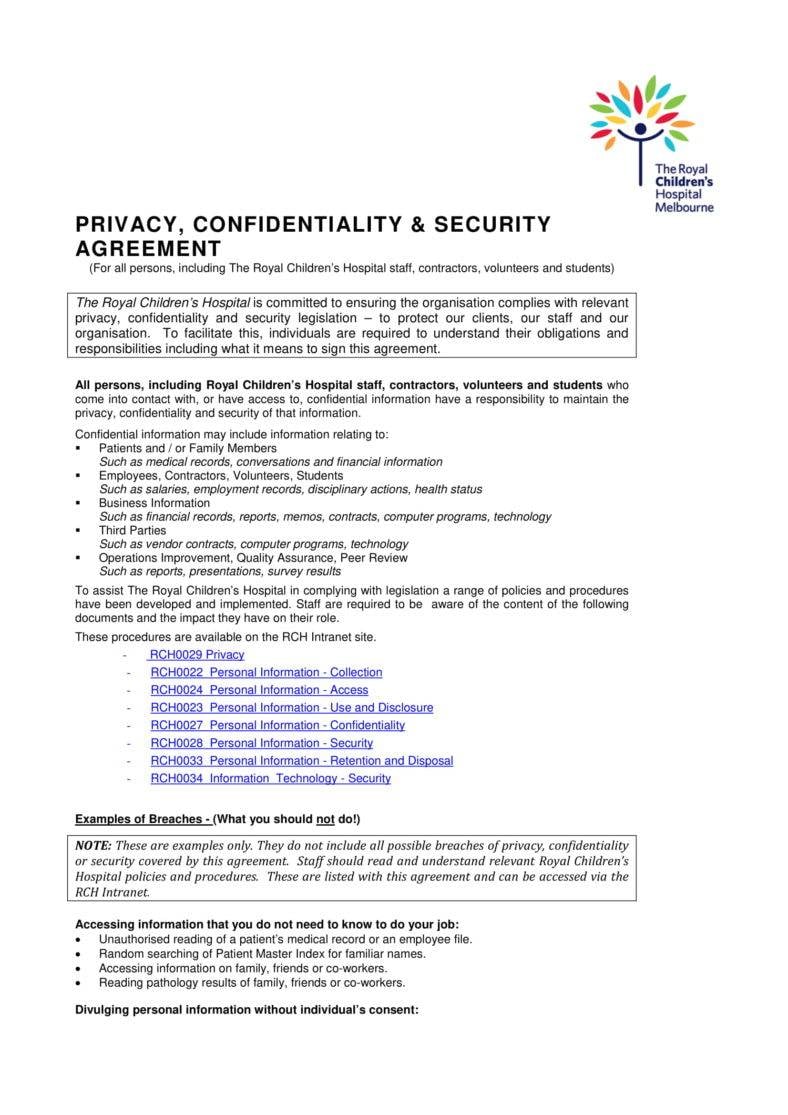
rch.org.au
The paramount importance of confidentiality cannot be emphasized enough in small business. It is everyone’s responsibility to consider all the information in the workplace as something of great value that needs to be protected. Treating them as such makes an employee prudent and ethical enough not to divulge any information that could harm the company, to the third party unless otherwise approved or commanded. Only then, while following other ethical standards, would ensure professionalism in the workplace, is properly maintained.






